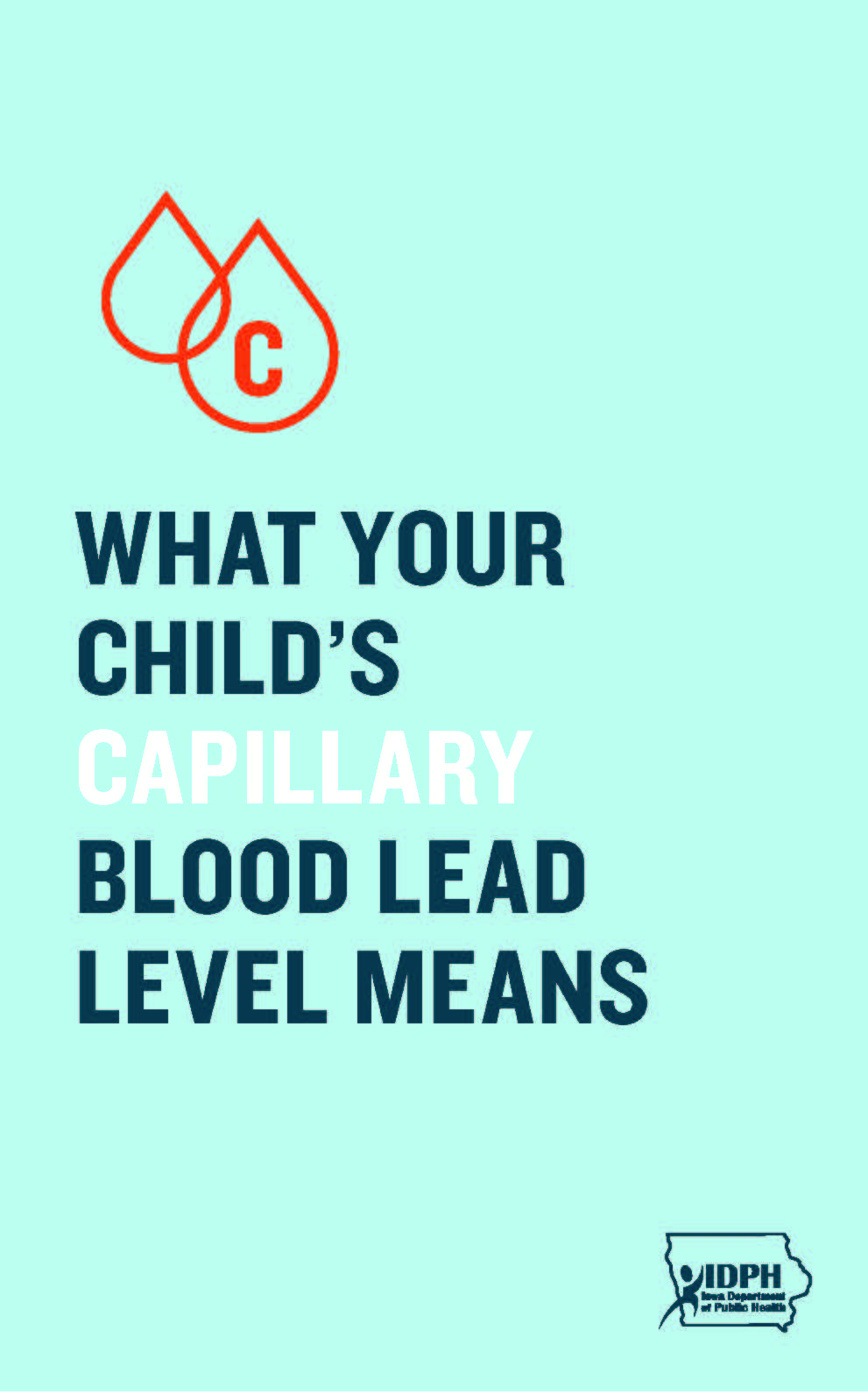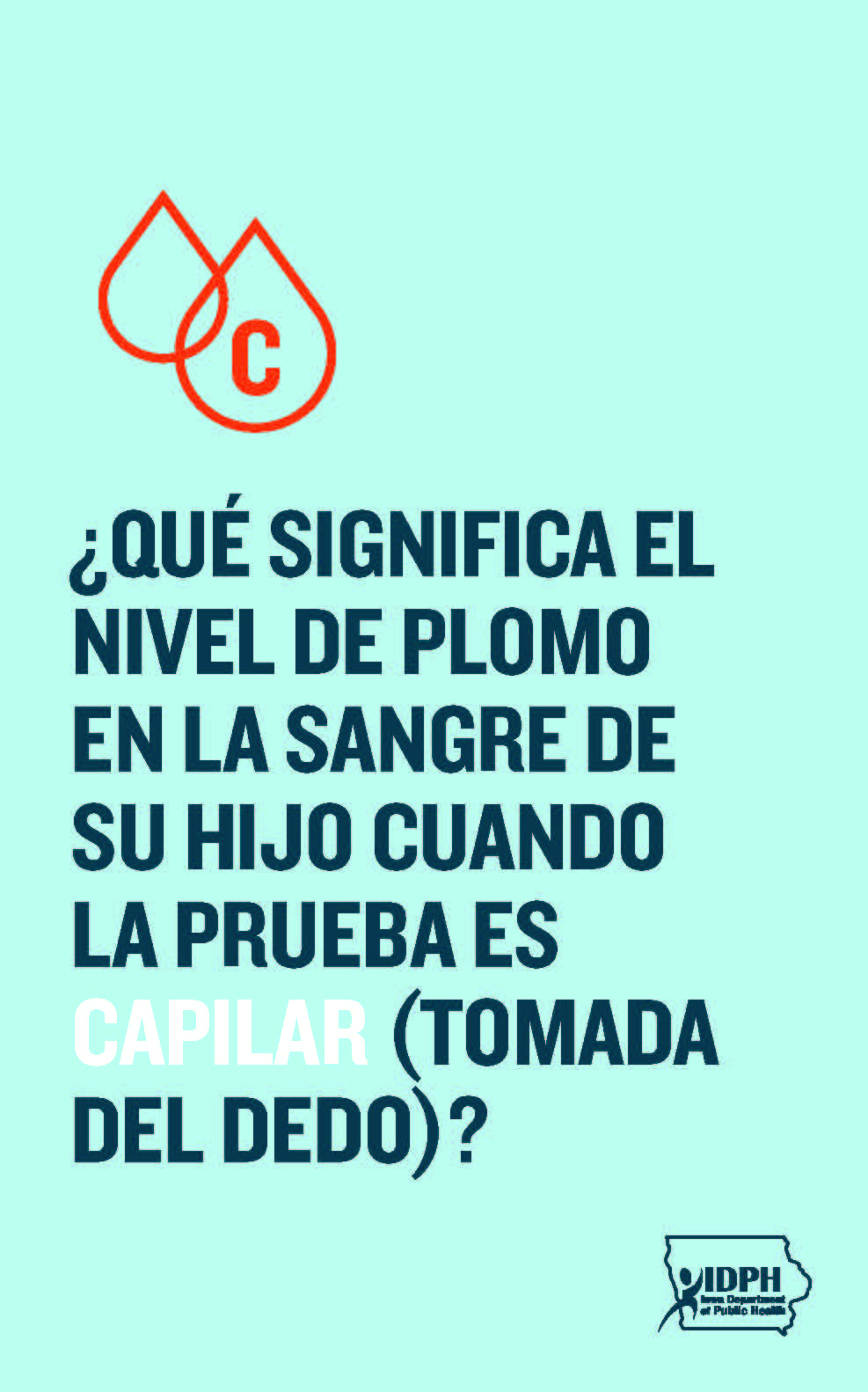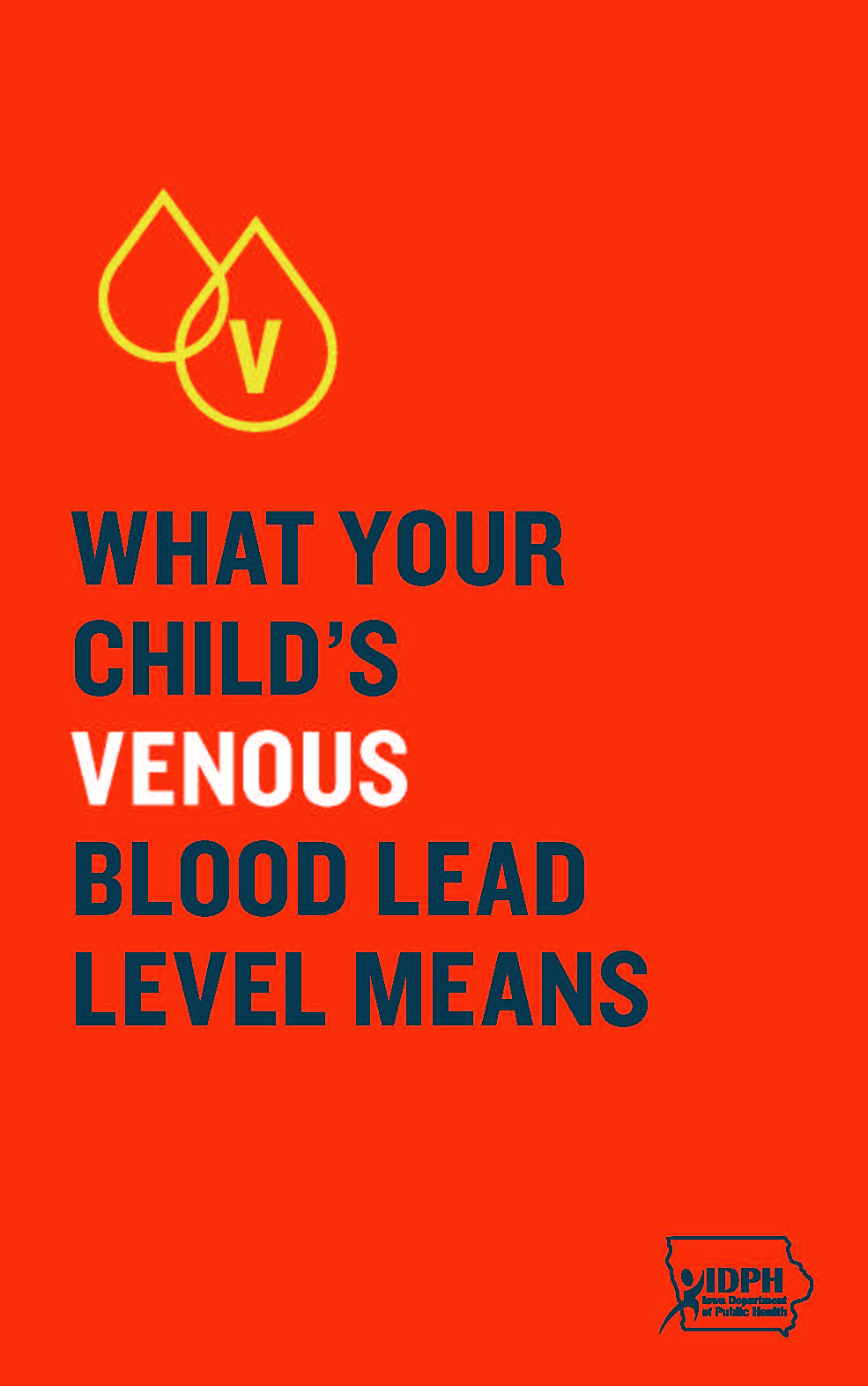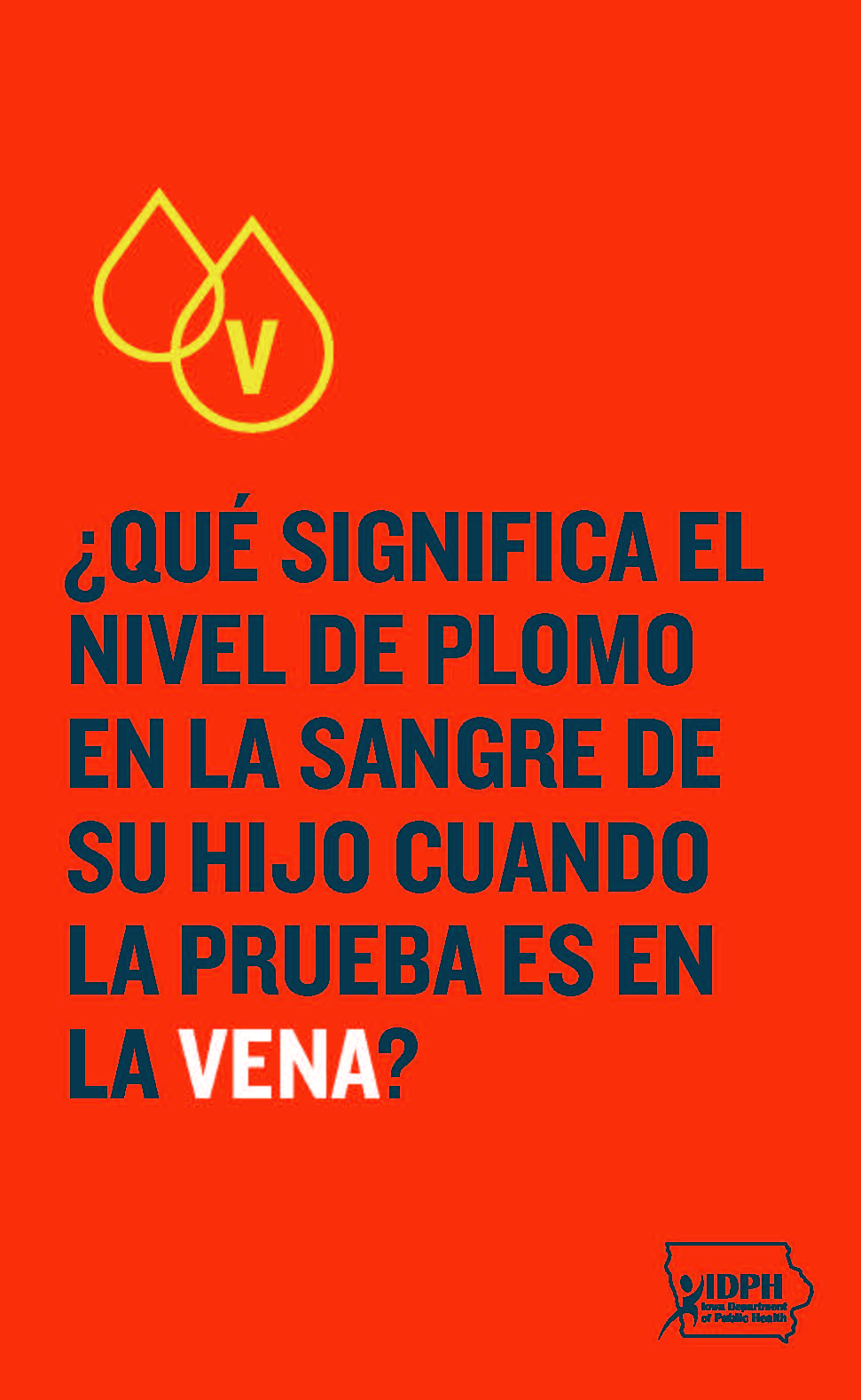Blood Lead Testing of Children
 A blood lead test is the only way to find out if your child has a high lead level. Most children with high levels of lead in their blood have no symptoms. Although lead hazards in pre-1978 housing are the most common risk to young children, lead can be found in many products and places.
A blood lead test is the only way to find out if your child has a high lead level. Most children with high levels of lead in their blood have no symptoms. Although lead hazards in pre-1978 housing are the most common risk to young children, lead can be found in many products and places.
A child’s risk of exposure changes rapidly as they become more mobile. One test is not an indicator of future exposure or blood lead level.
At a minimum, the Iowa Department of Public Health recommends that all children in Iowa get a blood lead test at 1 and 2 years of age and tested annually up to 6 years in age based on their risk factors. Ask your toddler’s health care provider to collect a blood lead sample every year, especially in their first couple of years of life when their bodies are growing and developing.
Your child's health care provider can provide information on preventing or minimizing lead exposure through regular hand washing, proper nutrition, home cleanliness, and other practices a parent can use in the home and anywhere the child spends time. Additional testing may be recommended by your provider to determine if ongoing exposure to lead is occurring.
Mandatory Blood Lead Testing in Iowa
In Iowa, legislation requires all children entering kindergarten have at least one blood lead level test.
Iowa House File 158 was passed in 2007, amended in 2008 and became effective July 1, 2008. This is known as “mandatory blood lead testing.”
The goal of this legislation is to protect Iowa children under the age of 6 years from lead damage in their developing brains and nervous systems, and to reduce the number of children with developmental and learning problems related to lead exposure.
Why does my child need a blood lead test?
Since 2008, Iowa law has required all children to have a lead test before they turn 6 years old and enter school. Blood lead testing promotes early detection and referral for treatment of lead poisoning; informs parents and guardians about their children's exposure to lead; and promotes the importance of living in a lead safe environment.
Who pays for the testing?
Most private insurers and public insurance plans, like Medicaid and Hawki cover the cost of a blood lead test. If you do not have a way to pay for the test, contact your local health department or IDPH at (800) 972-2026.
What if I don’t remember if my child had a blood lead test?
Call your child’s medical provider and ask them to check if a blood lead test for your child is in the medical chart. If it is, request a copy of the blood lead test results and bring it to your child’s school. If your provider does not have a record of testing, schedule a date to have your child tested.
What information do I need to provide to the clinic or lab?
Provide the same name and date of birth that you will report or already reported at your child’s school. If you submit your child’s information different at the clinic or school, it is likely that IDPH will not be able to determine that your child had a blood lead test, and will ask for a test later on.
In addition, ask your clinic or lab if they send blood-lead test results to IDPH. If they are not familiar with the procedure, please provide them with the department’s phone number: (800) 972-2026. This way, IDPH will not miss your child’s test results, and will not request another.
What do I do with my child’s blood lead test results?
If your child was tested in Iowa at a medical provider’s office, clinic, or lab, their results will be reported to IDPH. If your child was tested in another state, you will need to obtain a copy of his or her results and give it to your child's school to submit to IDPH.
Is my child’s blood lead testing information secure?
Yes, only authorized people have access to your child’s information. The Iowa Department of Public Health stores blood lead testing information in a secure database.
What if I do not want my child to have a blood lead test?
The Iowa Department of Public Health grants two types of exemptions to those who meet the criteria for a Religious and Low Risk Exemption.
- The religious exemption is for kindergartners whose parents/guardians believe a blood lead test conflicts with their genuine and sincere religious belief.
- The low risk exemption is for kindergartners who meet certain criteria regarding, among others, place of residence, parents’/guardians’ occupation, child’s mouthing habits and travel outside of the U.S.
To learn more about these exemptions, go to the Exemptions to Mandatory Blood Lead Testing web page or call IDPH at (800) 972-2026 or (515) 281-3225. If Deaf Relay (Hearing or Speech Impaired), call 711 (800)-735-2942.
Download the Has Your Child Been Tested For Lead Prior To Entering Kindergarten? frequently asked question document to share with other parents of kndergarten aged children.
What does your child's blood lead level mean?
There are two types of blood lead tests used to see if your child has lead poisoning: capillary and venous. A capillary blood lead test is used as a screening tool to tell if your child has been exposed to lead in the past 3-4 months. A small amount of blood is taken from the capillaries close to the skin in your child’s arm, finger or heel to find out how much lead they have in their blood. If this level is high, a venous test is recommended since it’s more accurate than a capillary test. Download the following brochures to learn more about what your child's blood lead level means.
Capillary Blood Lead Testing


Venous Blood Lead Testing


For more information on lead poisoning contact us at 1-800-972-2026 or online at Contact Us.